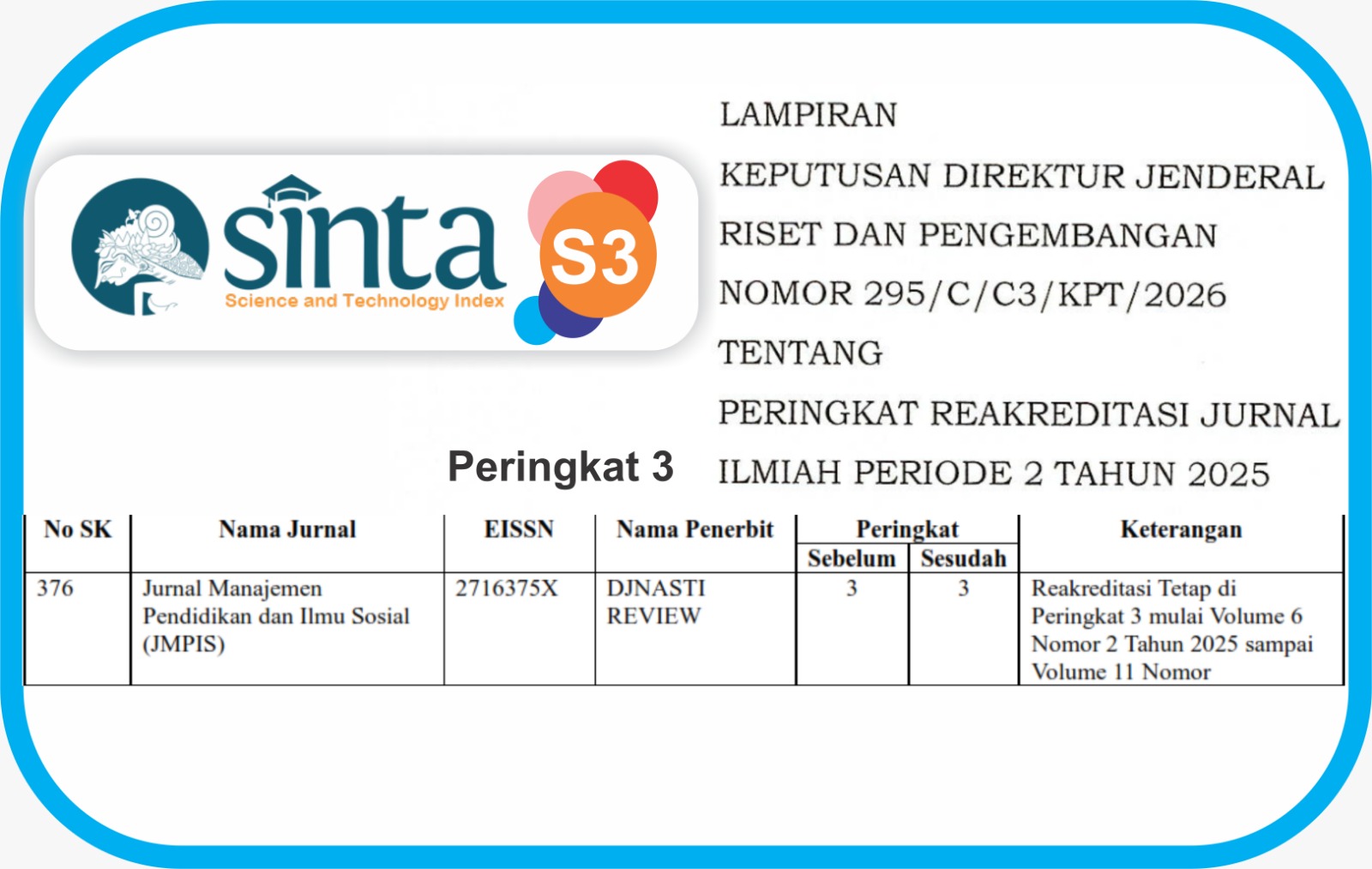Tata Kelola Pemerintahan Kolaboratif dalam Pengembangan Sektor Pariwisata di Kabupaten Mahakam Ulu
DOI:
https://doi.org/10.38035/jmpis.v5i4.2169Keywords:
Collaborative Governance, Tourism Development, Border AreasAbstract
Tourism is one sector that is receiving attention from the government to continue to be developed considering its potential contribution to the economy. Moreover, for Mahakam Ulu Regency, which in fact is a state border area, efforts are being made to explore its potential in the tourism sector with development measures. The hope is none other than to provide an increase in the standard of living for the people of Mahakam Ulu Regency. With the limitations of the regional government, the development of the tourism sector in Mahakam Ulu Regency is oriented towards collaborative governance mechanisms. This article aims to explain collaborative governance in developing the tourism sector in Mahakam Ulu Regency. To answer the research objectives, a qualitative approach was applied with data collected from various secondary sources. The results of the analysis show that collaborative governance in the development of the tourism sector in Mahakam Ulu Regency shows the participation of various actors such as the central government, regional government, community and private sector with the central government and regional government having a role in directing and empowering the resources they have which then have an impact in improving the standard of living of the community, the community is more oriented towards matters relating to community empowerment itself, and the private sector is expected to invest in advancing the tourism sector in Mahakam Ulu Regency. Among these four actors, the realization of collaborative governance will be seen if all of these actors create principles of engagement, shared motivation, and capacity for joint action.c
References
Amir, A., Taufan, D. ., & Fauzi, R. (2020). Identifying Potential and Development Status of Tourism Village Development in Central Lombok Regency, West Nusa Tenggara. Journal of Regional and Rural Development Planning, 42(8), 84–98.
Ansell, C., & Gash, A. (2008). Collaborative governance in theory and practice. Journal of public administration research and theory, 18(4), 543-571.
Barandiarán, X., Restrepo, N., & Luna, Á. (2019). Collaborative governance in tourism: lessons from Etorkizuna Eraikiz in the Basque Country, Spain. Tourism Review, 74(4), 902-914.
Bichler, B. F., & Lösch, M. (2019). Collaborative governance in tourism: Empirical insights into a community-oriented destination. Sustainability, 11(23), 6673.
Cho, B. S., Lee, J., Lee, W., & Min, H. (2019). Changing management strategies of a government-hosted festival: The case of Hi Seoul Festival, South Korea. International Journal of Event and Festival Management, 10(2), 174-188.
Emerson, K. (2018). Collaborative governance of public health in low-and middle-income countries: lessons from research in public administration. BMJ Global Health, 3(Suppl 4), e000381.
Emerson, K., Nabatchi, T., & Balogh, S. (2012). An integrative framework for collaborative governance. Journal of public administration research and theory, 22(1), 1-29.
Keyim, P. (2018). Tourism collaborative governance and rural community development in Finland: The Case of Vuonislahti. Journal of travel research, 57(4), 483-494.
Kim, K., Uysal, M., & Sirgy, M. J. (2013). How does tourism in a community impact the quality of life of community residents?. Tourism management, 36, 527-540.
Kuswandi, A. (2020). Strategi Pemerintah Daerah dalam Pembangunan Pariwisata di Provinsi Nusa Tenggara Barat. Jurnal Agregasi: Aksi Reformasi Government Dalam Demokrasi, 8(2), 90-113.
Picard, M. (2018). ‘Cultural tourism’in Bali: National integration and regional differentiation 1. In Tourism in South-East Asia (pp. 71-98). Routledge.
Robertson, P. J. (2011). An assessment of collaborative governance in a network for sustainable tourism: the case of RedeTuris. International Journal of Public Administration, 34(5), 279-290.
Tien, N. H., Thai, T. M., Hau, T. H., Vinh, P. T., & Long, N. V. T. (2019). Solutions for Tuyen Quang and Binh Phuoc tourism industry sustainable development. Comparative analysis. International Journal of Research in Marketing Management and Sales, 2(1), 101-107.
Tolkach, D., & King, B. (2015). Strengthening Community-Based Tourism in a new resource-based island nation: Why and how?. Tourism Management, 48, 386-398.
Yasintha, P. N. (2020). Collaborative Governance Dalam Kebijakan Pembangunan Pariwisata Di Kabupaten Gianyar. Jurnal Ilmiah Dinamika Sosial, 4(1), 1-23.
Downloads
Published
How to Cite
Issue
Section
License
Copyright (c) 2024 Sophia Hipui

This work is licensed under a Creative Commons Attribution 4.0 International License.
Hak cipta :
Penulis yang mempublikasikan manuskripnya di jurnal ini menyetujui ketentuan berikut:
- Hak cipta pada setiap artikel adalah milik penulis.
- Penulis mengakui bahwa Jurnal Manajemen Pendidikan dan Ilmu Sosial (JMPIS) berhak menjadi yang pertama menerbitkan dengan lisensi Creative Commons Attribution 4.0 International (Attribution 4.0 International CC BY 4.0) .
- Penulis dapat mengirimkan artikel secara terpisah, mengatur distribusi non-eksklusif manuskrip yang telah diterbitkan dalam jurnal ini ke versi lain (misalnya, dikirim ke repositori institusi penulis, publikasi ke dalam buku, dll.), dengan mengakui bahwa manuskrip telah diterbitkan pertama kali di Jurnal Manajemen Pendidikan dan Ilmu Sosial (JMPIS).











































































